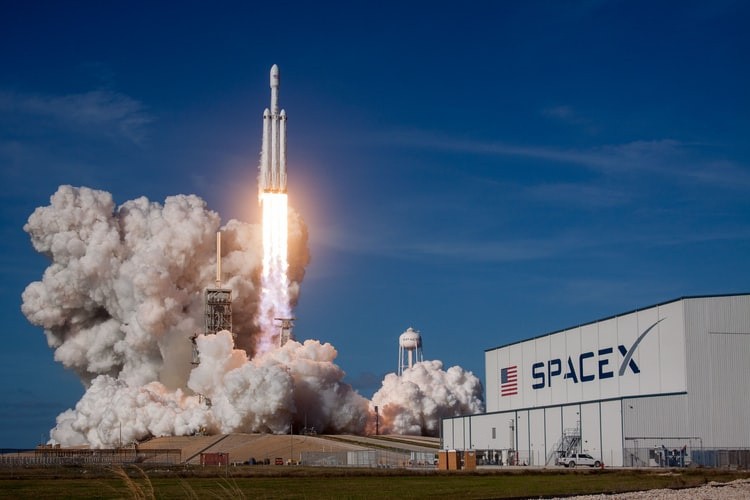
Notice what appears to be a string of lights while gazing at the night sky. Those are not UFOs, but a group of satellites known as SpaceX Starlink as the space technology company sent another back of its into orbit.
SpaceX launched an additional 60 Starlink satellites into Earth's orbit as the space venture founded by billionaire Elon Musk continues to push to establish a multibillion-dollar telecom enterprise said in a report on Fox News.
The Internet-beaming satellites lift off from NASA's Kennedy Space Center on top of SpaceX's Falcon 9 rocket. Minutes later, SpaceX Starlink satellites are in orbit and will begin to ascend to their operational altitude at around 340 miles. Now, there are a total of over 400 Starlink satellites in circling the Earth.
Fast Internet Connectivity
SpaceX founder and CEO Elon Musk told Fox News that they are looking forward to launching this innovative Internet service provider this year in the United States and Canada. From the current number of 400 satellites, the space venture is planning to scale it up to over 40,000 satellites. The company envisioned shroud Earth to make available an inexpensive but fast Internet connectivity around the world. It could potentially generate billions of dollars in revenue for SpaceX once it becomes successful.
The space company explained that through SpaceX Starlink satellites, The internet could be directly beamed into the terminals located in the houses of customers.
A Long Way to Go
However, the report noted that the venture has a long way to go to be able to provide reliable Internet connectivity at a price that makes sense for consumers, something that many tech firms have failed to do in the past.
One of SpaceX's rivals, OneWeb, filed bankruptcy last month after unsuccessful negotiations for more cash from Japanese conglomerate SoftBank. SoftBank suffered financial problems brought by the coronavirus pandemic. It is another company that plans to provide high-speed internet from space. It also falls behind SpaceX in launching internet satellites with only 74 satellites in orbit.
Classified as Critical Infrastructure
While most industries are temporarily closed due to the pandemic, the federal government has allowed SpaceX to continue most of its operation since the government classified the U.S. space industry as "critical infrastructure."
So far, for the year, SpaceX has already launched three missions of Starlink satellites. The company slated to carry a first-ever manned mission in May. SpaceX targets to hit a milestone next month as it eyes to send two NASA astronauts onboard its Crew Dragon spacecraft on top of a Falcon 9 rocket to the International Space Station. If successful, it will be the first human-crewed space mission to be launched from American soil since the termination of the Space Shuttle program in 2011.
However, some of its space missions were also affected by the coronavirus pandemic. The launch of a satellite for the Argentinian space agency and the next-generation GPS satellites for the U.S. military were put on hold and moved to a later date.
Brigadier General Doug Schiess explained to Fox News that they are "still evaluating launches on a case-by-case basis to ensure the safety of government workers required to be on-site to provide weather monitoring and other services during launches." Schiess is the commander of the U.S. 45th Space Wing, which oversees space missions around Florida. Some space missions get the green light from the U.S. space force to make sure that the space industry will not accumulate a long backlog.
Scheiss said that the Starlink missions require a lower number of government workers since SpaceX's Falcon 9 rocket has an abort system that automatically destroys the rocket if it veers away from its trajectory to avoid any damage to infrastructure.
Also Read: SpaceX to adjust Starlink Orbit Plans for Faster Deployment
![Apple Watch Series 10 [GPS 42mm]](https://d.techtimes.com/en/full/453899/apple-watch-series-10-gps-42mm.jpg?w=184&h=103&f=9fb3c2ea2db928c663d1d2eadbcb3e52)



